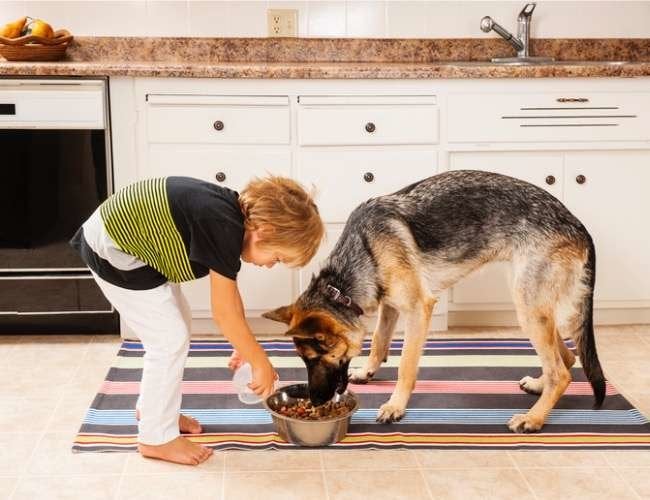

We may earn revenue from the products available on this page and participate in affiliate programs. Learn More ›
Home Advice You Can Trust
Tips, tricks & ideas for a better home and yard, delivered to your inbox daily.
Chores Help Kids Succeed
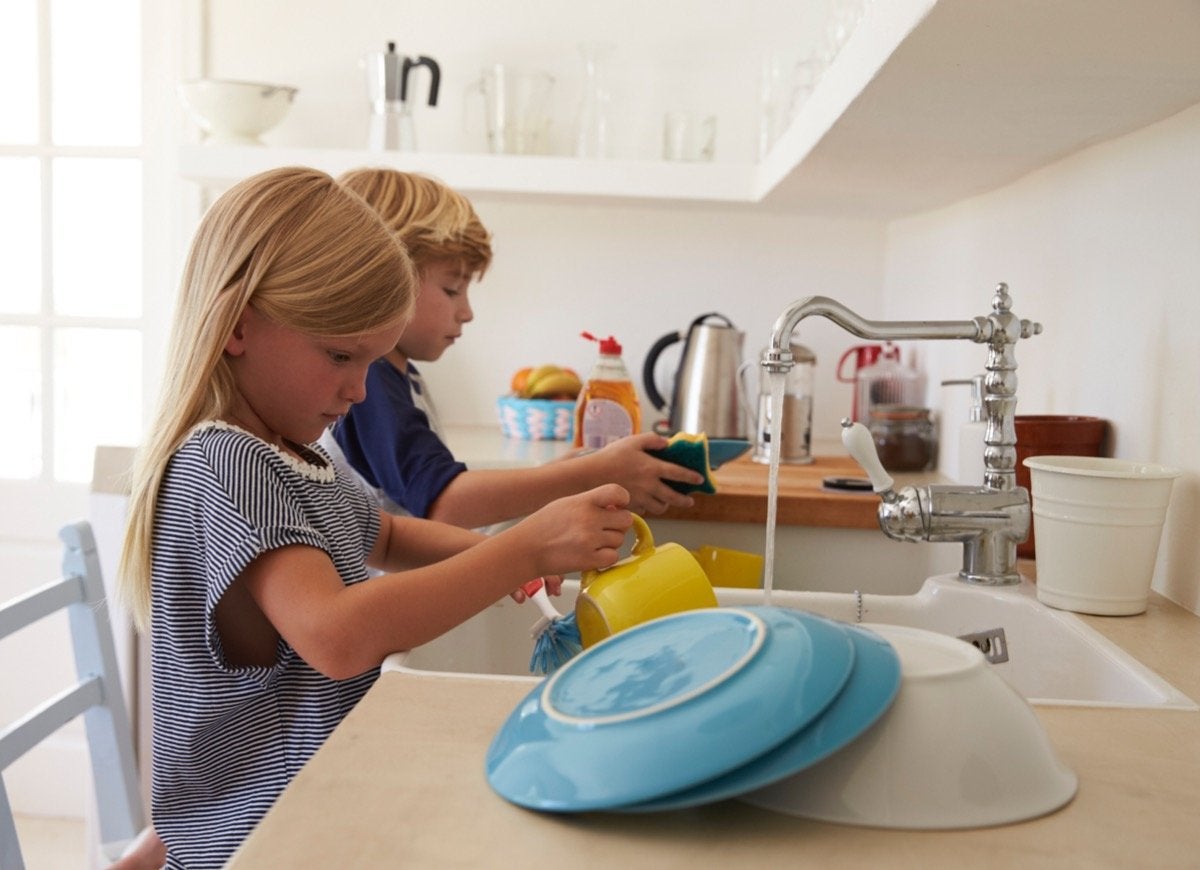
Chores may seem to be boring or uninspiring, but consider this: “Children who do chores may exhibit higher self-esteem, be more responsible, and be better equipped to deal with frustration, adversity, and delayed gratification. These skills can lead to greater success in school, work, and relationships,” according to the American Association of Child & Adolescent Psychiatry. Based on this guidance and other psychological research, we’ve compiled a list of age-appropriate tasks for kids aged 2 to teen. With love and open communication, these life skills can bring many rewards, including a positive attitude and a spirit of community service.
Best for 2 to 3 Years: Tidy Toys
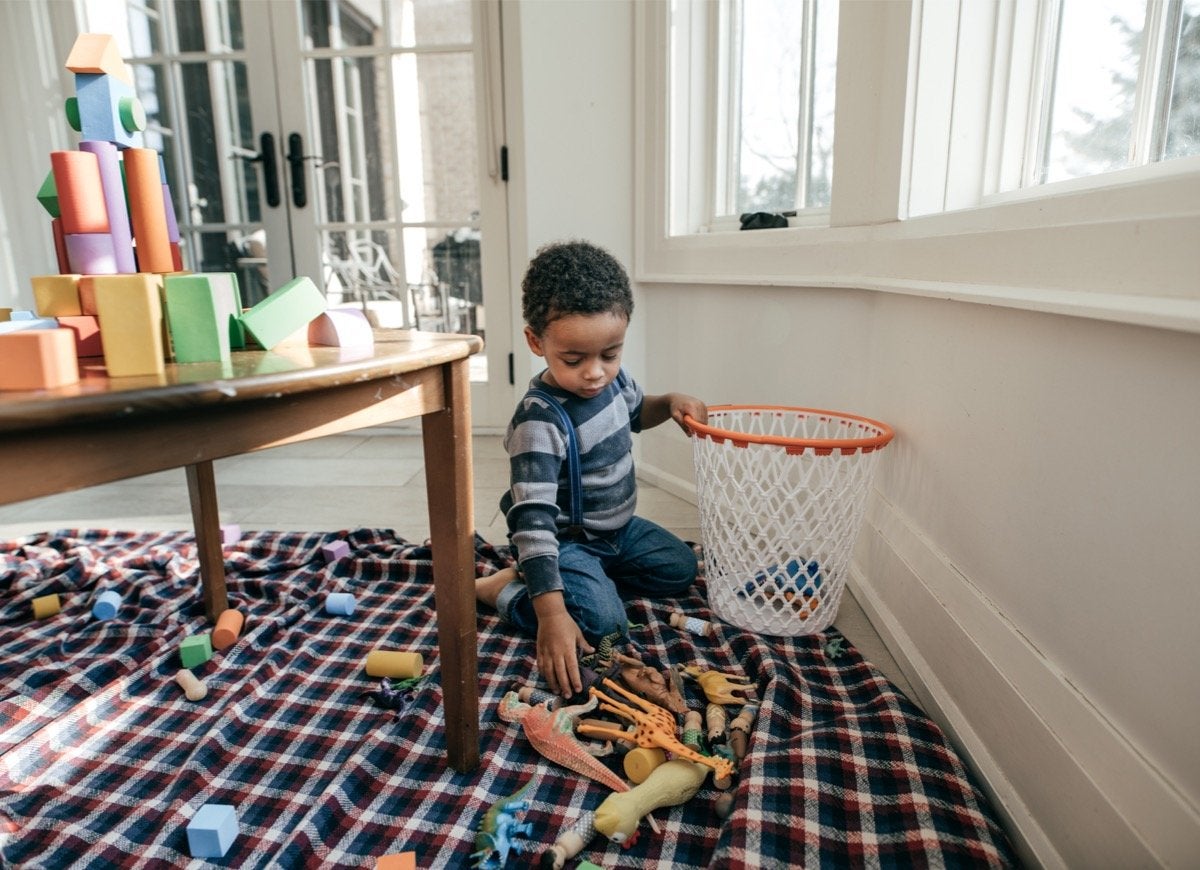
Once your children are showing the developmental benchmarks of a toddler—standing on tiptoe, climbing up and down furniture—they are probably ready for light chores. One of the easiest ways to instill tidiness and conscientiousness? Encourage your tots to pick up their toys after playtime. Buy a toy chest for cleanup time or install open shelves that are low to the ground to house board books, blocks, and more.
Best for 2 to 3 Years: Hang Up Clothes
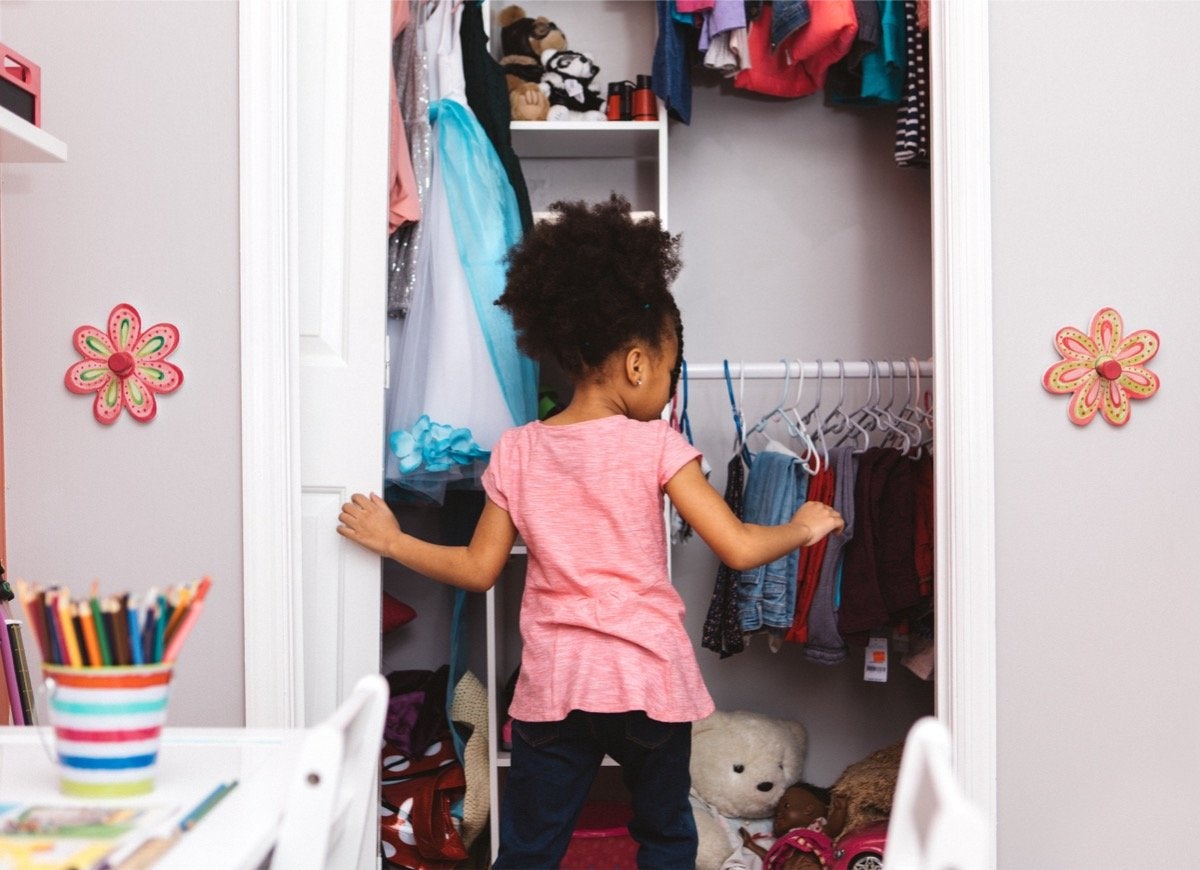
You may notice your 2- or 3-year-old beginning to copy your every move. This mirroring behavior can be helpful in many situations. For example, by showing your child how you put away your clothes every night, you can foster the same desire in them. Install a child-level clothing rod in the closet of your kid’s room or low hooks on the back of the door, so little ones can easily hang up their clothes. If that’s too difficult, start easy and fun by having them fold undies and match up socks and roll them into balls.
Best for 2 to 3 Years: Unbag Groceries
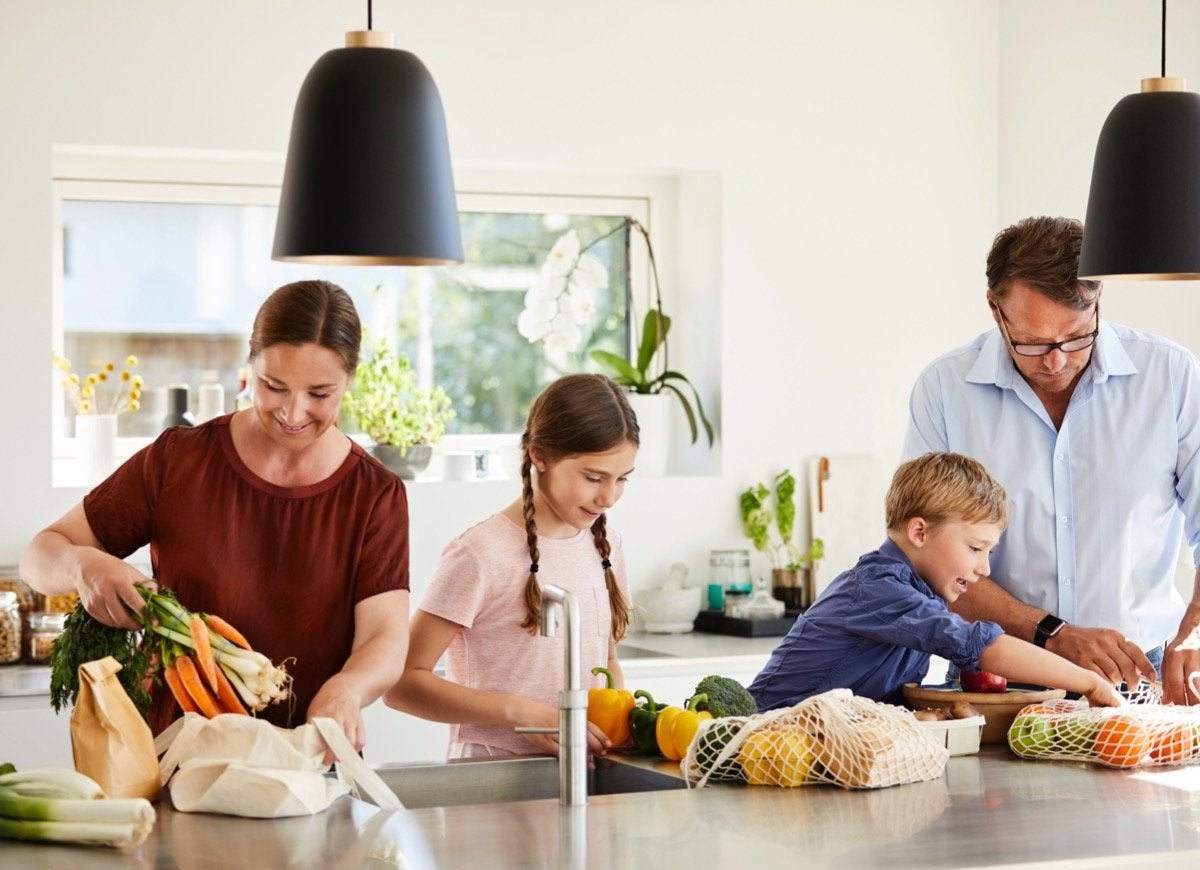
Another task that is appropriate for 2- to 3-year-olds is helping to unbag groceries. While they may not yet know where everything goes—or be able to reach higher shelves and cupboards—you can tailor the environment to make it easier for them to participate. Place a low table within reach for easy unloading, or ask your child to hand you items one by one. Monitor carefully, but also give kids freedom to pitch in.
Best for 3 to 5 Years: Feed Fido
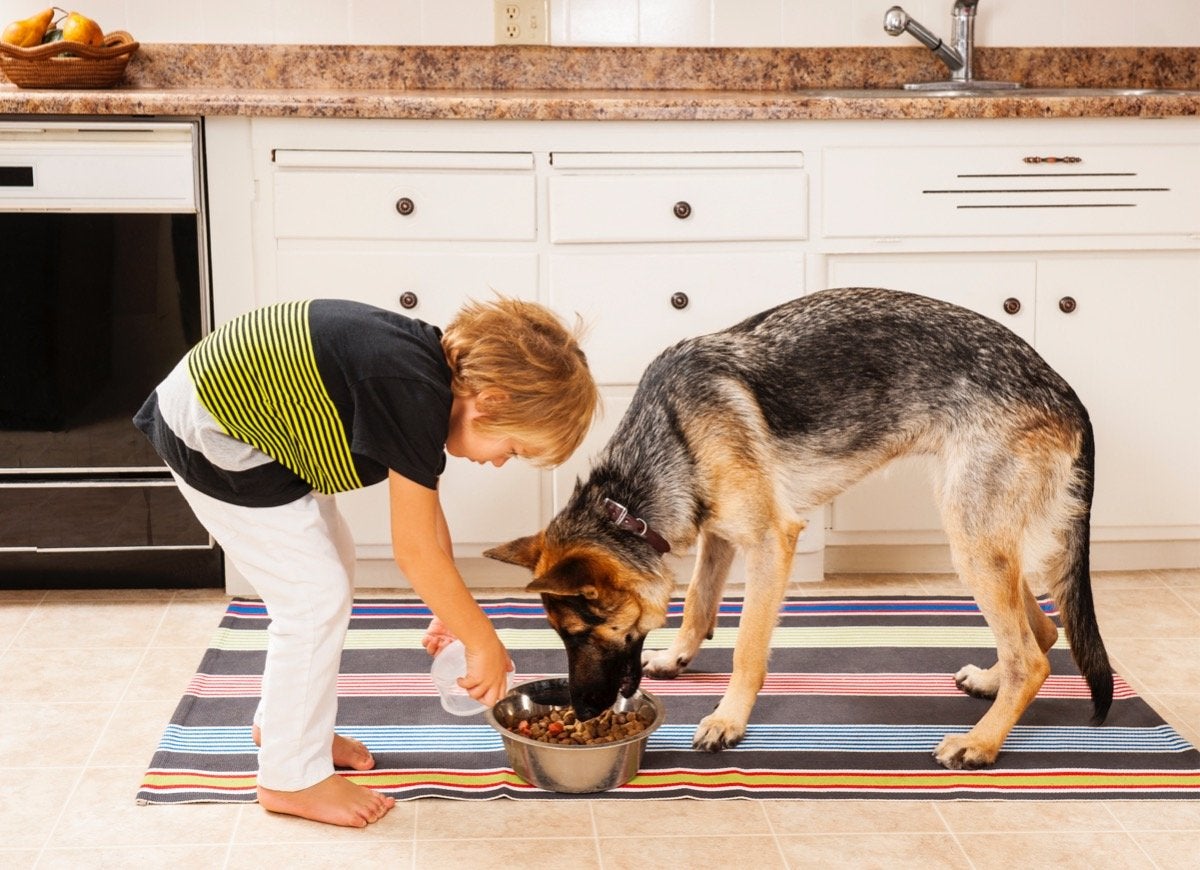
Children between 3 and 5 are learning to show affection and to focus on others. Helping to take care of a pet can strengthen these empathetic and caring impulses. Feeding a pet is an easy way to start, but be sure to watch small children as they engage in this fun task. Little ones are naturally curious and may be tempted to place a doggy or kitty treat in their mouth. Explain the difference between pet food and people food, and make sure they wash their hands once the job is done.
Best for 3 to 5 Years: Make Beds
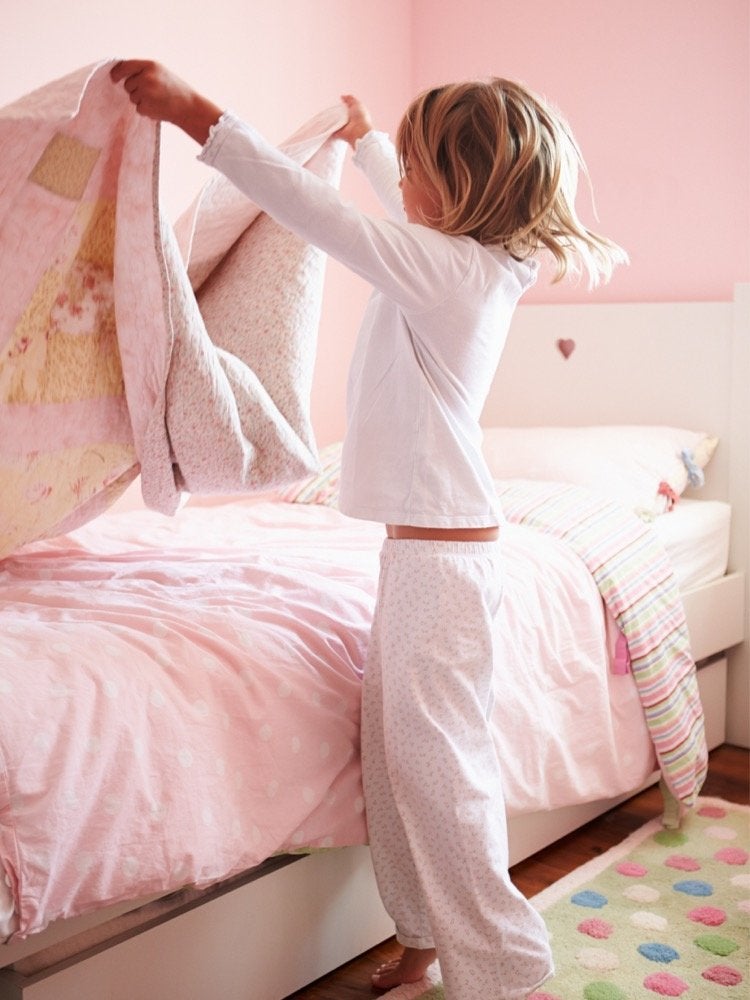
Tidying up the bed every morning is a great habit that 3- to 5-year-olds can develop. Show them how to pull up and smooth out the flat sheet, the blanket, and bedspread, then have them place the pillow in position at the head of the bed. Make the process easier for them by situating the bed away from the walls and keeping bed clutter (stuffed animals, pillows, spare blankets) to a minimum. Don’t aim for perfection; let them own the task. Before you know it, with a little instruction, you’ll have them making perfect hospital corners.
Best for 3 to 5 Years: Set and Clear the Table
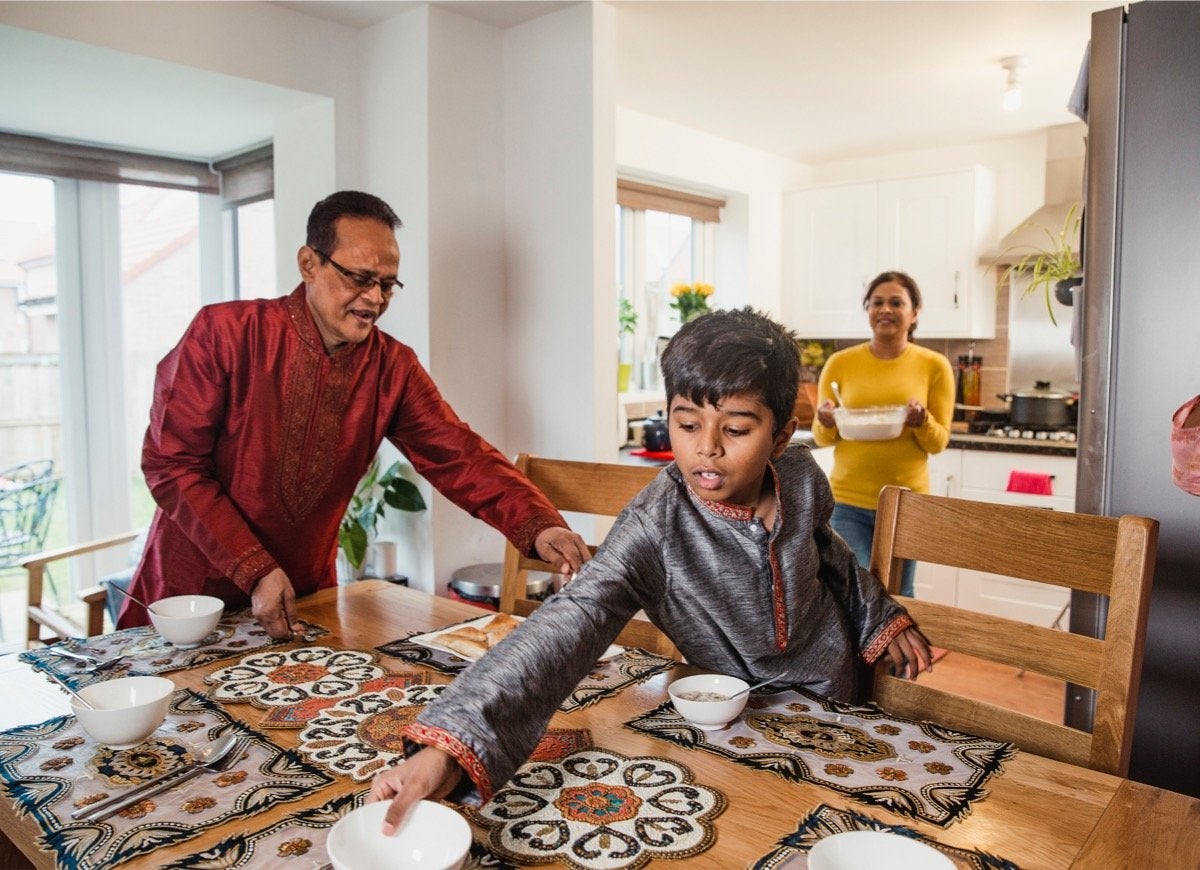
Setting the table helps make dinnertime a family ritual. Put plates, utensils, cups, and napkins within reach, then show your child how to set the table. Another option is to enlist their services as the cleanup crew. Youngsters can scrape plates into the trash or compost pail and rinse them in the sink while standing on a sturdy step stool. If you’re concerned about sharp silverware and fragile plates, consider purchasing bamboo plates and utensils. This nontoxic, sustainable dinnerware is safe for kids (and adults) of all ages.
Best for 5 to 8 Years: Fold Laundry
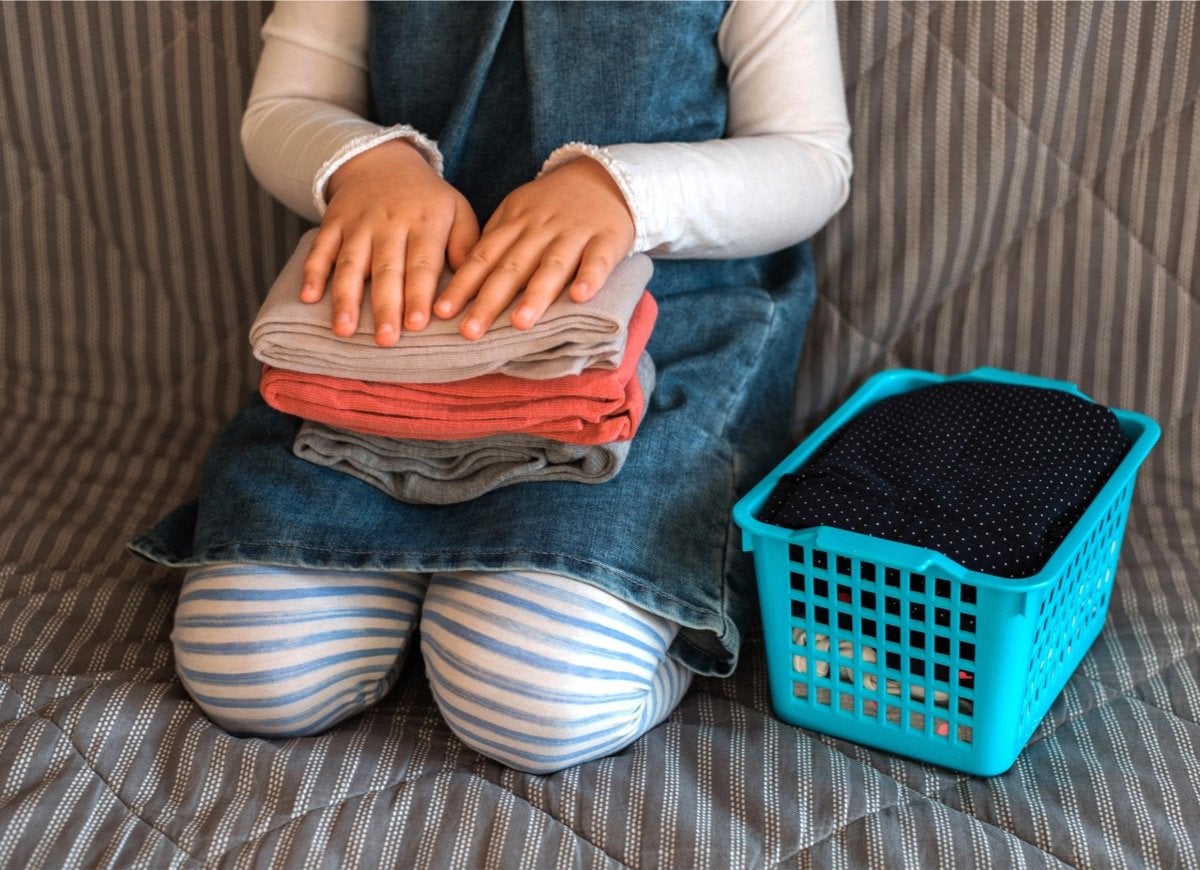
The CDC recommends using positive discipline with your 5- to 8-year-olds. “Follow up any discussion about what not to do with a discussion of what to do instead.” Household chores like folding laundry can instill this discipline naturally and gently. Start by asking your kids to fold their own laundry, showing them how different items of clothing should be properly cared for. Eventually, your child may take on the job of laundry-folder without prompting.
Best for 5 to 8 Years: Wipe Counters
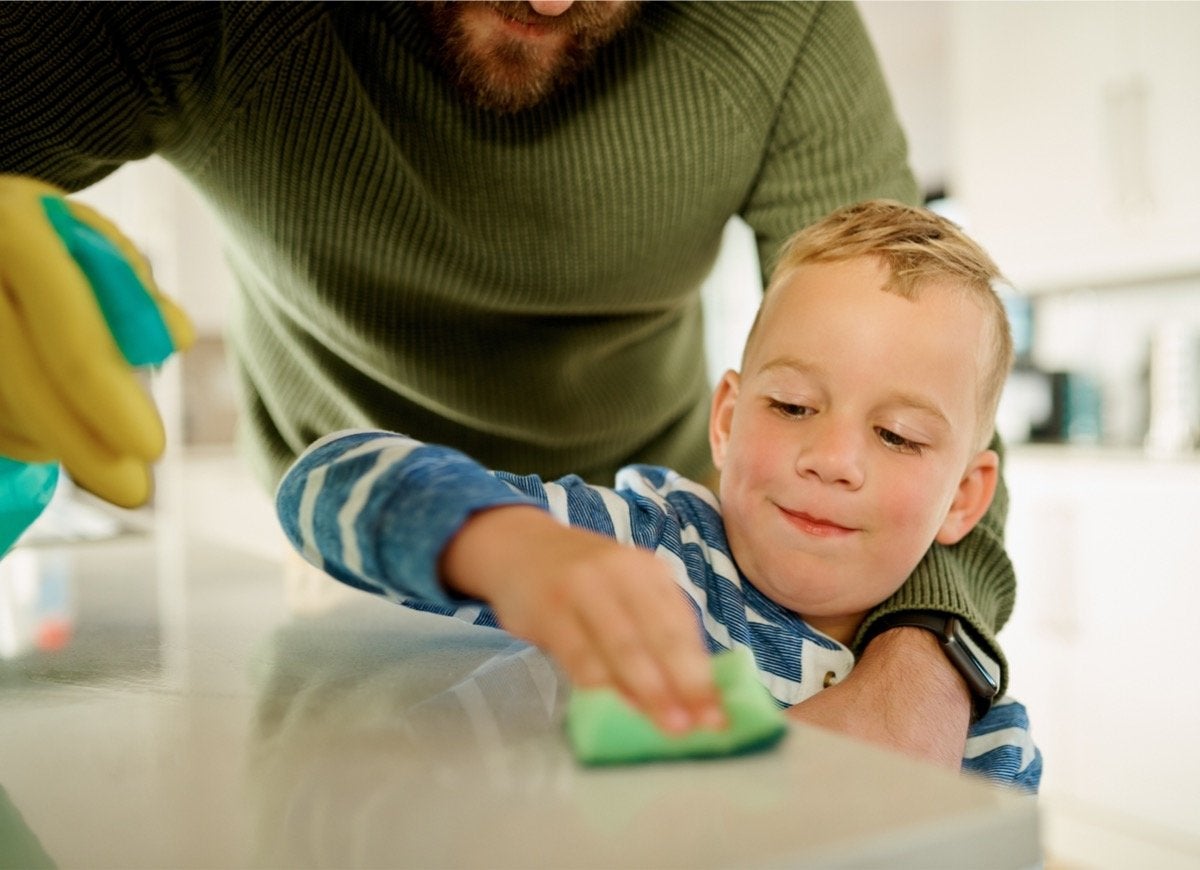
Many commercial cleaning products can be dangerous or toxic if used improperly, and most children don’t yet have the understanding to take necessary precautions. But they can safely use a 50-50 solution of water and white vinegar, which can be just as effective for cleaning many household surfaces, including some kitchen counters. As an alternative, select a nontoxic commercial all-purpose cleaning spray and show your child how to use the product safely with a paper towel or clean rag. Chat with your child about product safety too, as 5- to 8-year-olds are ready for these life lessons, although they may not be ready to practice them without supervision.
Best for 5 to 8 Years: Sweep Floors
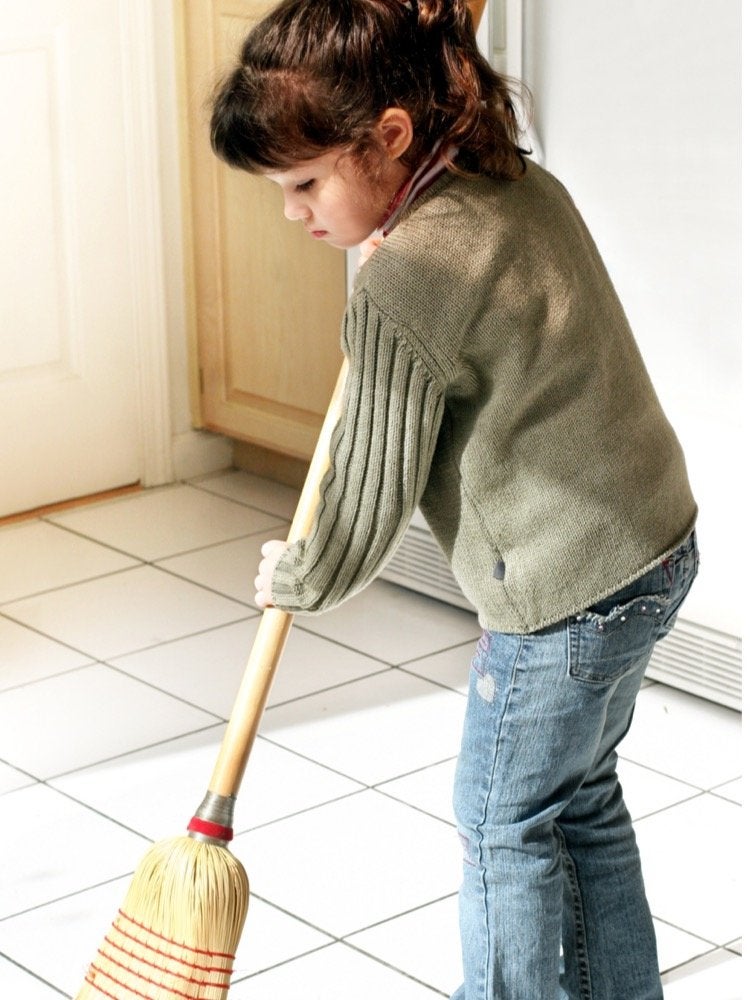
Forget the vacuum and leaf blower. An old-fashioned broom is still an excellent cleaning tool, for both indoor and outdoor use. A child-size broom is even better, especially one made of all-natural, nontoxic, sustainable wood. Kids love to use their imaginations, and nothing is better than playing pretend while doing chores. So, let your kiddo channel their inner Cinderella and sweep up the kitchen, or turn on some music and let the cleaning games commence!
Best for 5 to 8 Years: Load and Unload Dishwasher
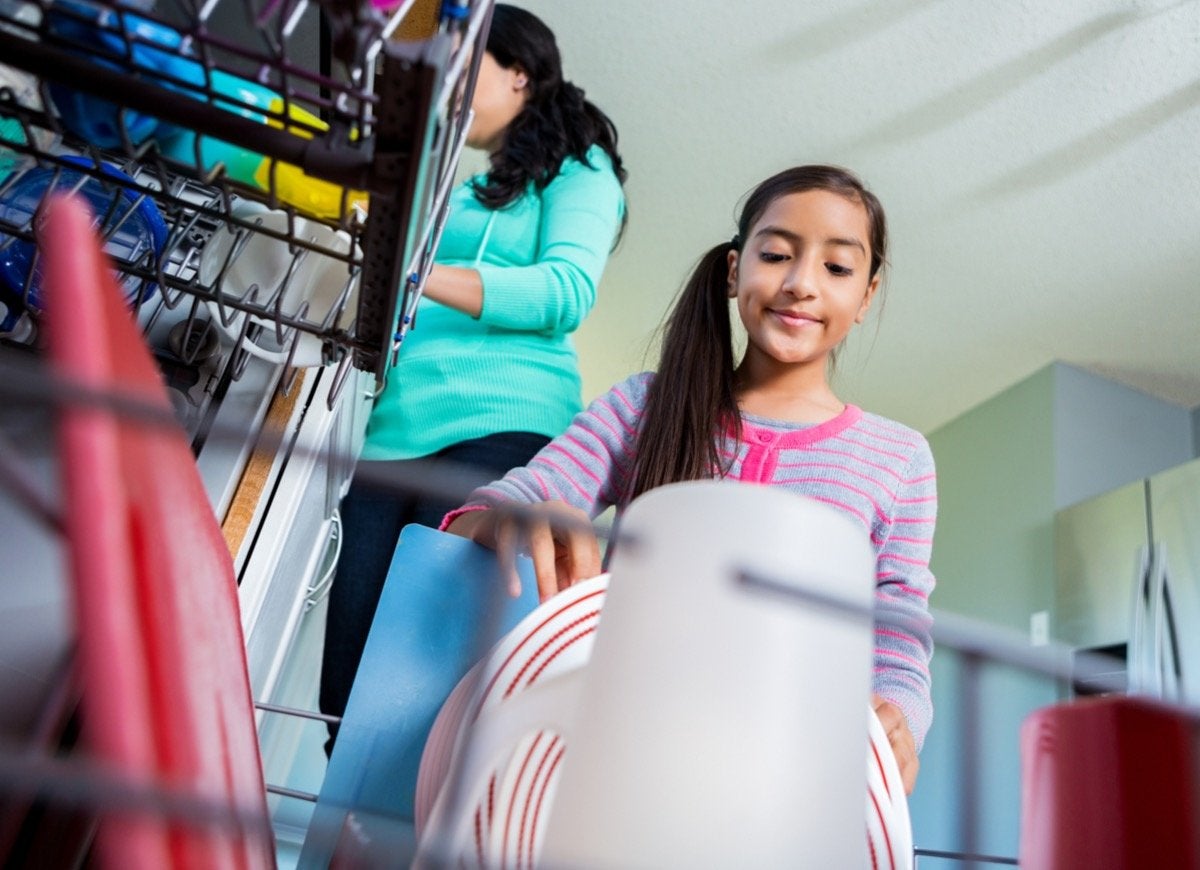
While washing dishes by hand can be a real chore, your kids can easily get in the habit of placing dirty dishes in the dishwasher. Show them how to load dishwasher detergent or pods, and where dishes go once they are clean. Unloading the dishwasher is a job for one child, so if you have several, find ways to divvy up the tasks fairly, or rotate jobs to keep the kids engaged and stave off boredom.
Best for 5 to 8 Years: Pack Lunches
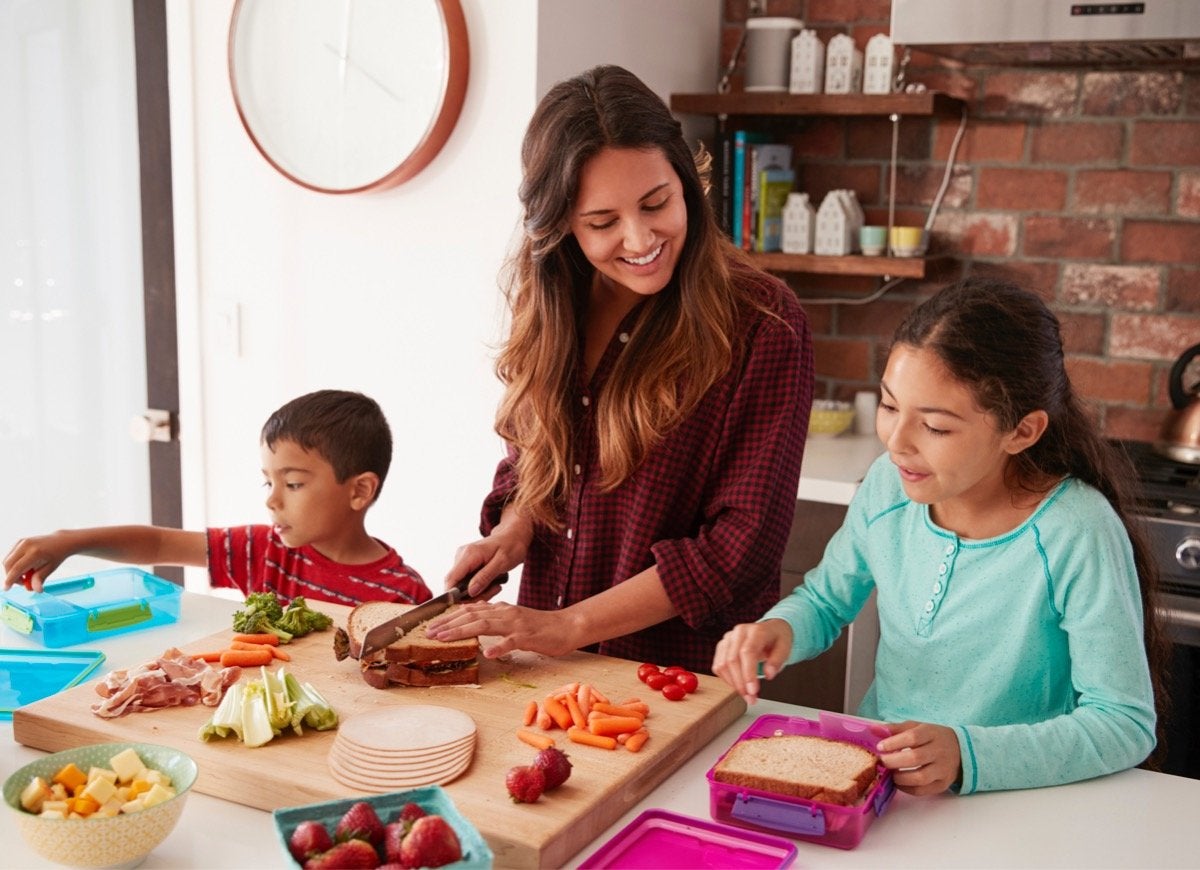
You may dread waking up at 6 a.m. to pack lunches, but with a little strategic planning and communication, your 7- or 8-year-olds can accomplish this job themselves. Learning how to pack lunches is not only a lesson in self-sufficiency, it’s Good Nutrition 101. There are plenty of online resources to help you out, including Kid’s Healthy Eating Plate from the Harvard T.H. Chan School of Public Health. This visual guide to good eating and exercise can help build in healthy habits from the start.
Best for 5 to 8 Years: Take Out the Trash
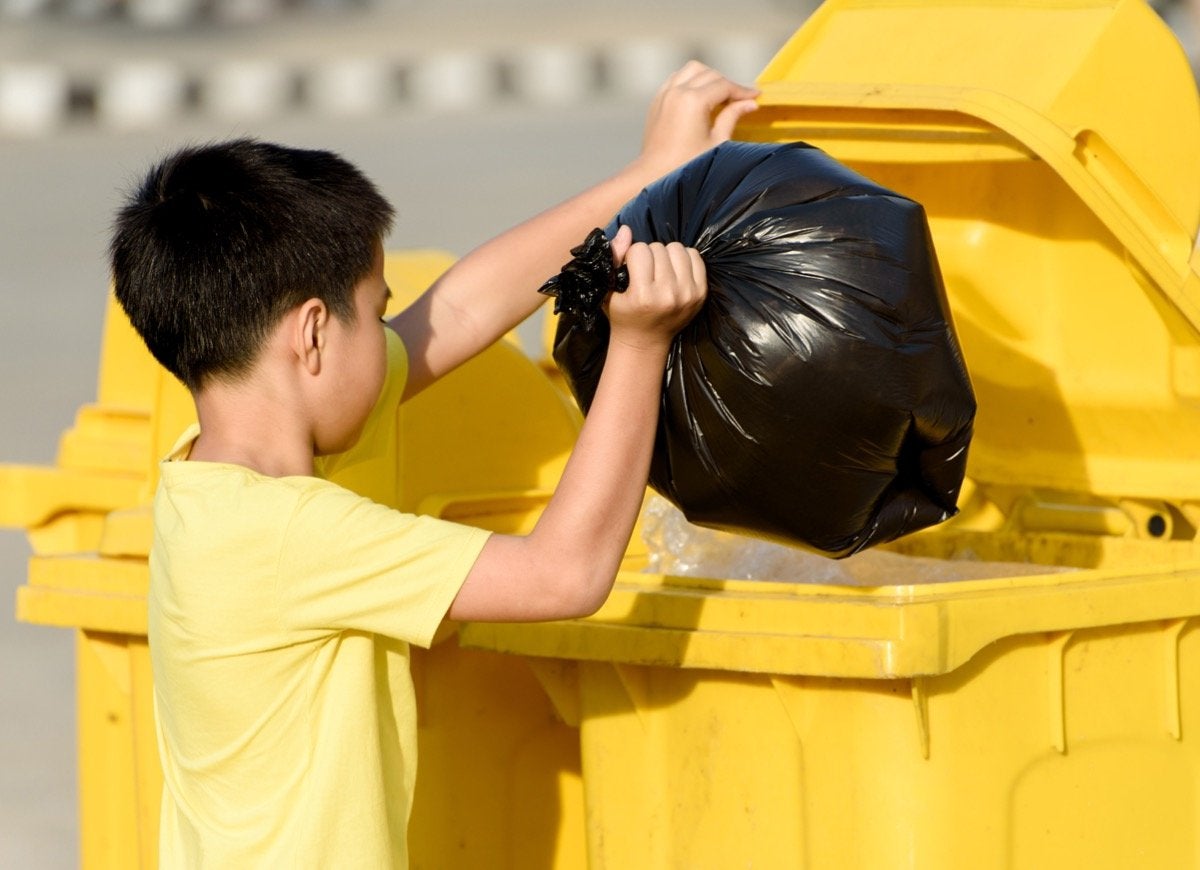
It’s the chore we love to hate, but with these trash day hacks, your kids will be less likely to complain. For instance, line the bin with newspaper to sop up icky spills, and keep extra bags nearby (or in the bottom of the can, if it doesn’t get a lot of wet garbage) for easy replacement. A lesson you can teach in tandem is respect for our garbage men and women. Encourage your child at least once a year to write a letter of thanks to your neighborhood waste disposal and recycling teams. A little love goes a long way.
Best for 8 to 12 Years: Change Sheets
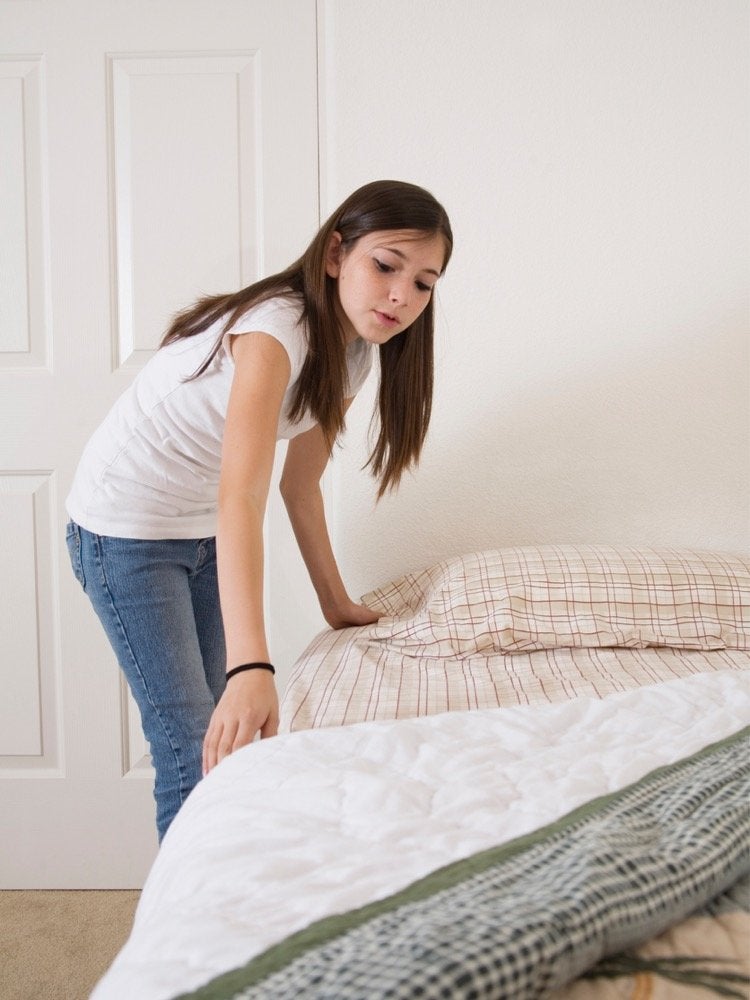
As children get older and stronger, more rigorous chores can be taught and assigned. Changing sheets is a particularly good workout, so make it your kids’ responsibility to strip and make their bed. You may also want to throw this curveball at your precocious child: How do you fold a fitted sheet? Frame it like a puzzle, then show them how it’s done. Your linen closets will thank you—and your kids may enjoy the challenge.
Best for 8 to 12 Years: Clean Kitchen
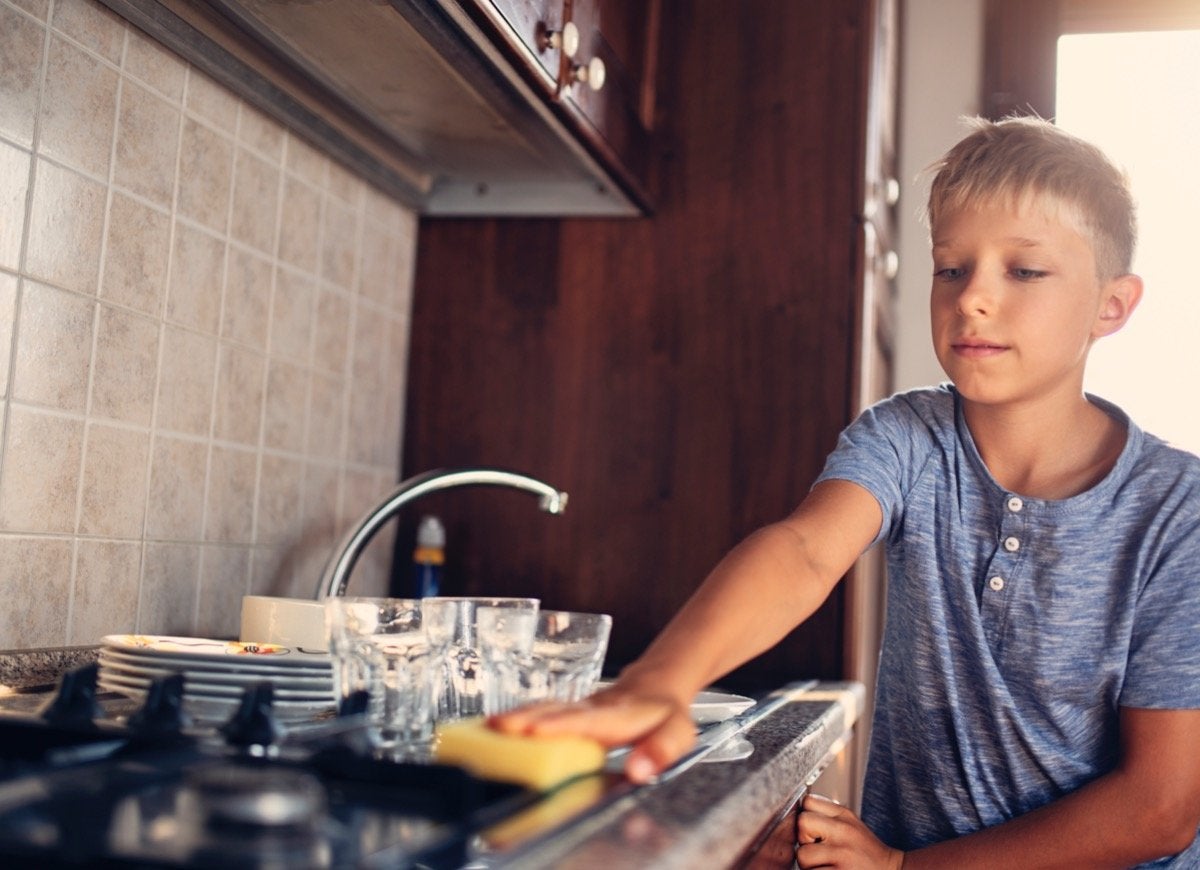
Boost your 8- to 12-year-olds’ social skills by setting guidelines and modeling good behavior. For example, show them how to safely clean and navigate your kitchen, and demonstrate how everyone needs to pitch in to keep it in order. Make sure they know how to use cleaning products safely, and which products can be used on which surfaces. When they clean up the kitchen, acknowledge their efforts and express appreciation for their cooperation and helpfulness.
Best for 8 to 12 Years: Clean Bathroom
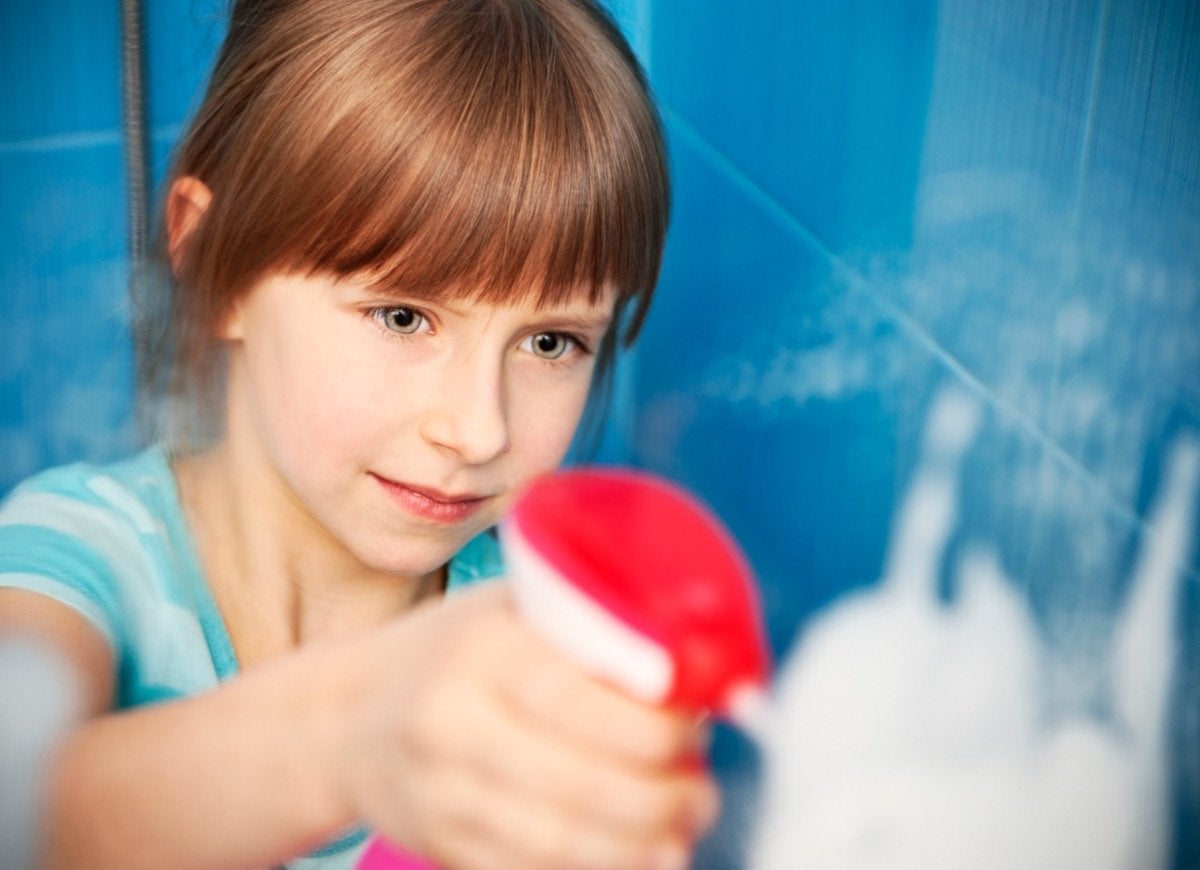
Kids may complain at first, but cleaning the bathroom can be rewarding. Even an attitudinal tween appreciates gazing into a streak-free mirror and washing up in a sink that isn’t spotted with globs of dried toothpaste. Be mindful of the type of cleaning products they will be using, especially if heavy-duty chemicals like ammonia or bleach are in your supply closet. Show your school-age child how to clean safely (rubber gloves, ventilation), and choose mild, nontoxic cleaners. Kids also love wacky ideas, so show them a few bathroom cleaning hacks to get their elbows greased and curiosity engaged.
Best for 8 to 12 Years: Rake Yard
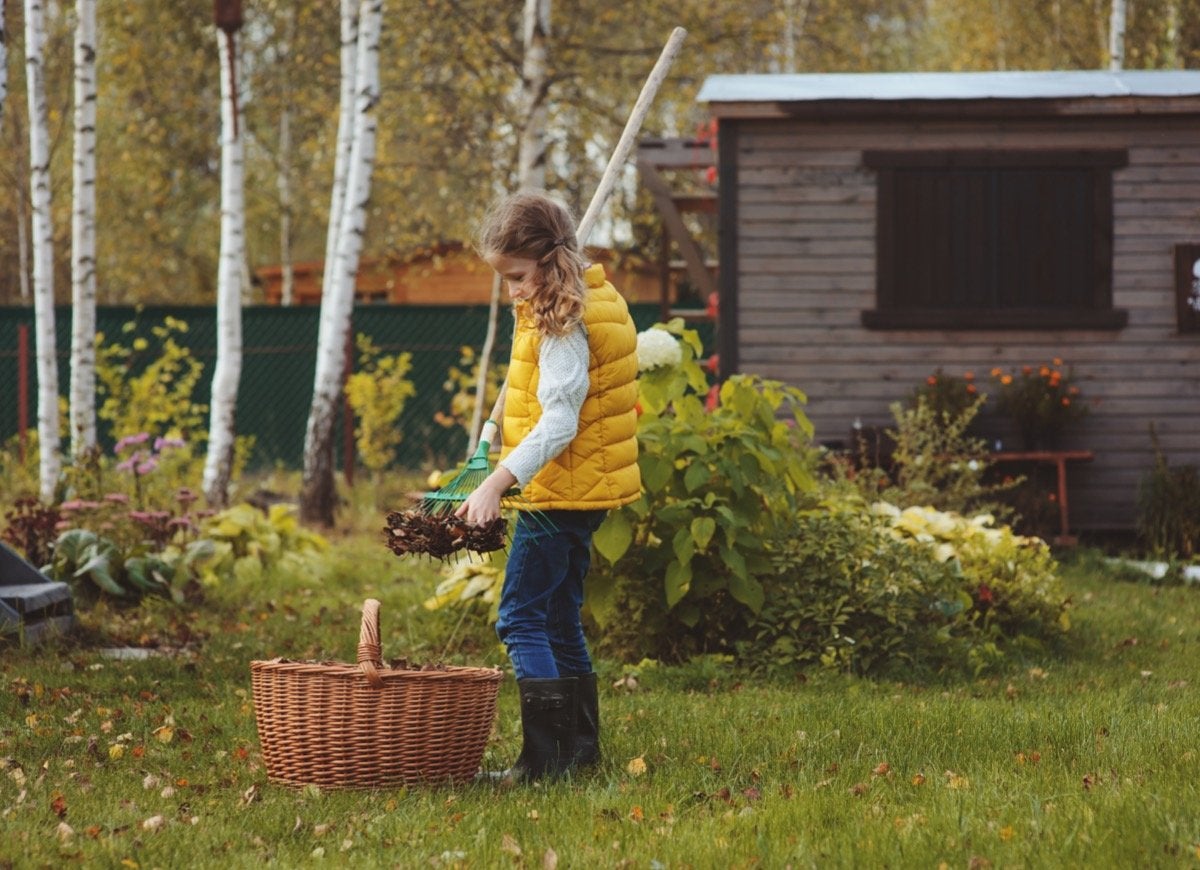
By the time children are 10, 11, or 12, they can probably handle an adult-size rake. Make yard work a family affair by tackling seasonal chores together. While you weed the flower beds and your partner mows the lawn, your kids can be doing the cleanup work: sweeping walkways, raking leaves and grass clippings, and putting down mulch.
Best for 8 to 12 Years: Plant Flowers
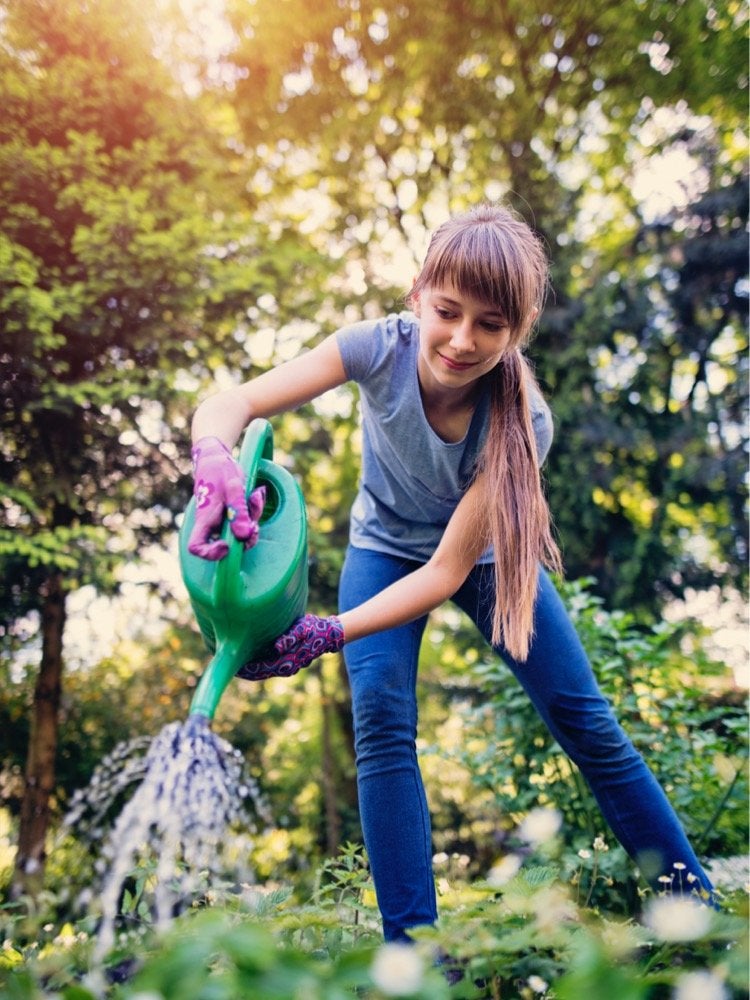
Your own backyard is the perfect classroom for learning about nature firsthand. Complement your hands-on experiments with family-friendly resources, such as Kidsgardening.org, which offers free activities and ideas to cultivate your youngster’s green thumb. Explain the difference between annuals and perennials, then work together to figure out which types of flowers and vegetables will grow best in your region and soil.
Best for 8 to 12 Years: Care for Pets
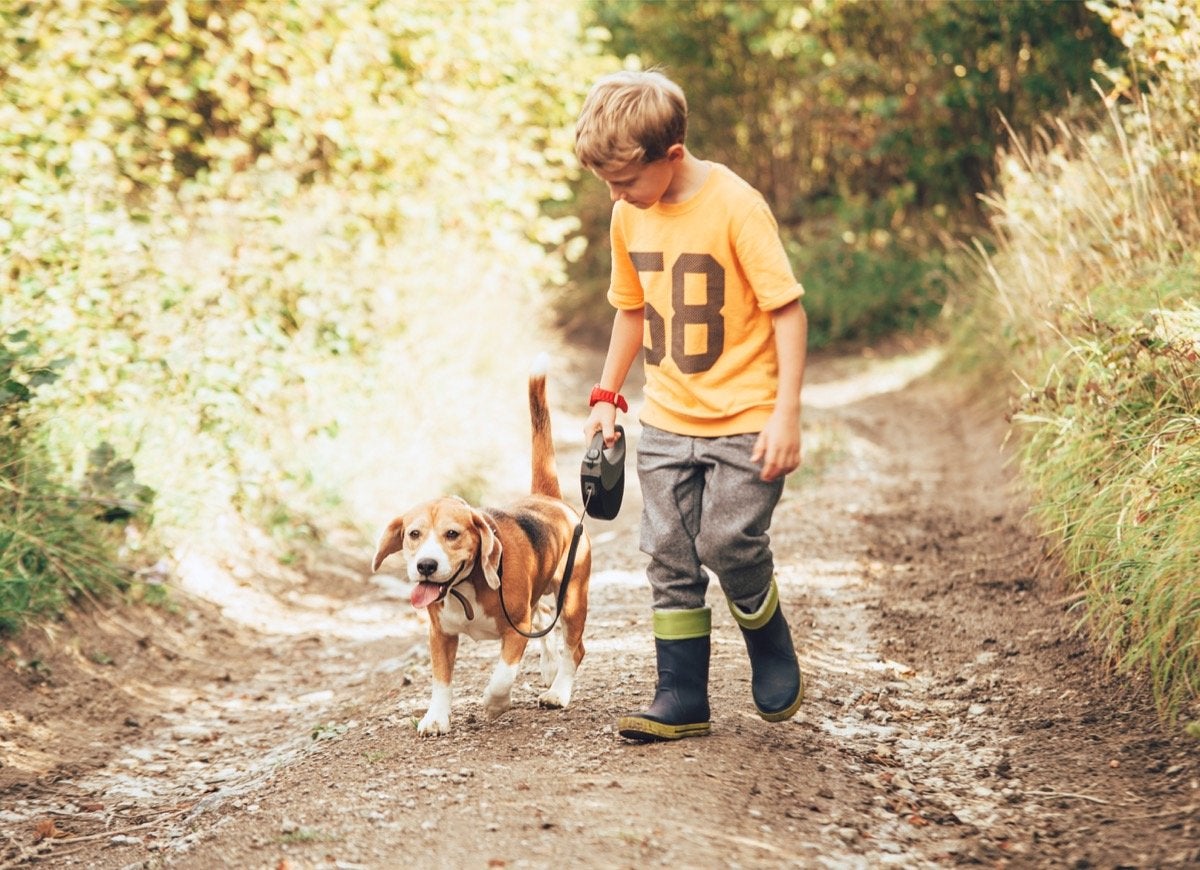
As kids mature, feel free to turn over more pet-care duties. Walking and cleaning up after the family dog can develop important life skills, including responsibility, keeping to a schedule, and exercise. If your child gets queasy at the thought of picking up poop, offer a compromise in the form of a DogBuddy. This user-approved pooper-scooper may take some of the ick factor out of dog walking.
Best for 8 to 12 Years: Organize Closets
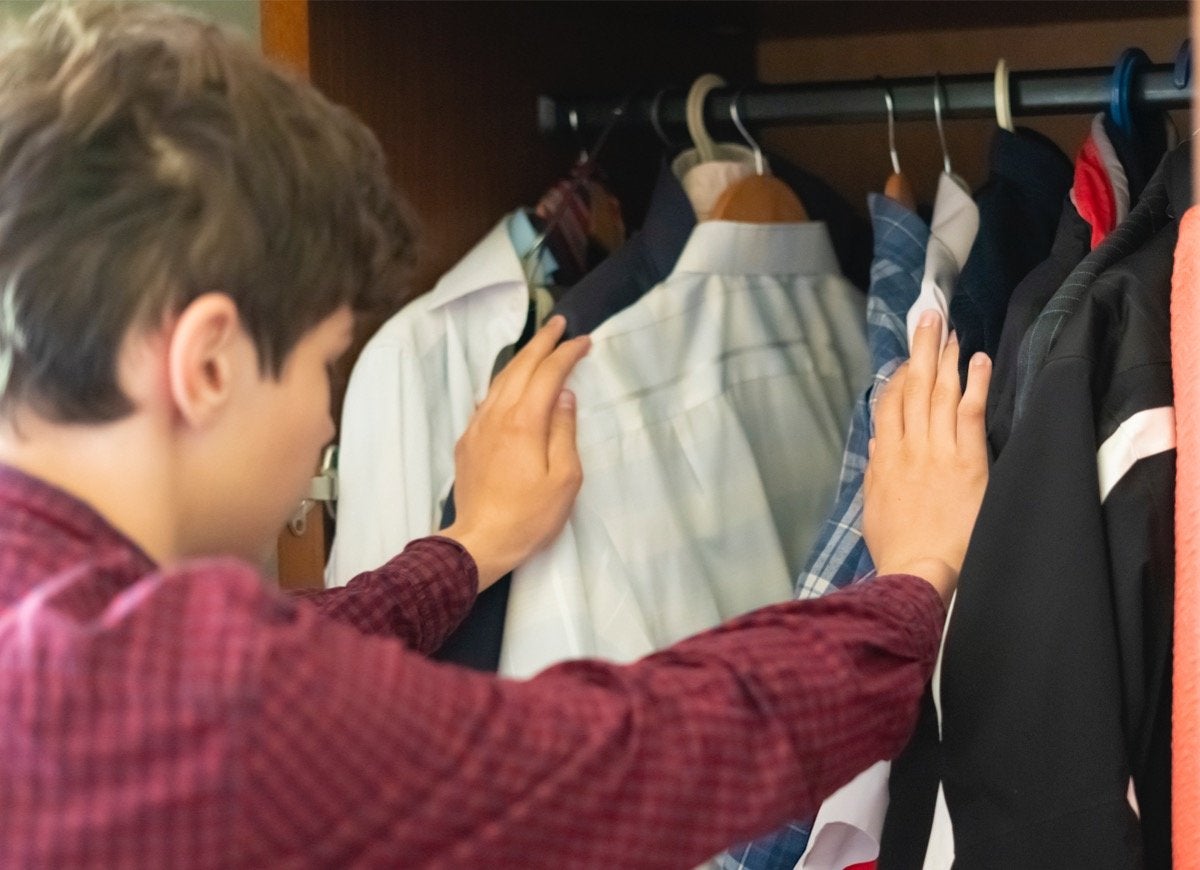
Rather than assigning chores without discussion, talk with your children about the tasks they’d most like to contribute to the household. This becomes more possible as they get older and develop their own sense of self and service to others. Organizing linen closets and the pantry can be great jobs for children who enjoy computer games, repeated tasks, and predictability. Encourage them to take “before” and “after” photos, and praise their home makeover results.
Best for 13 to 16: Wash Car
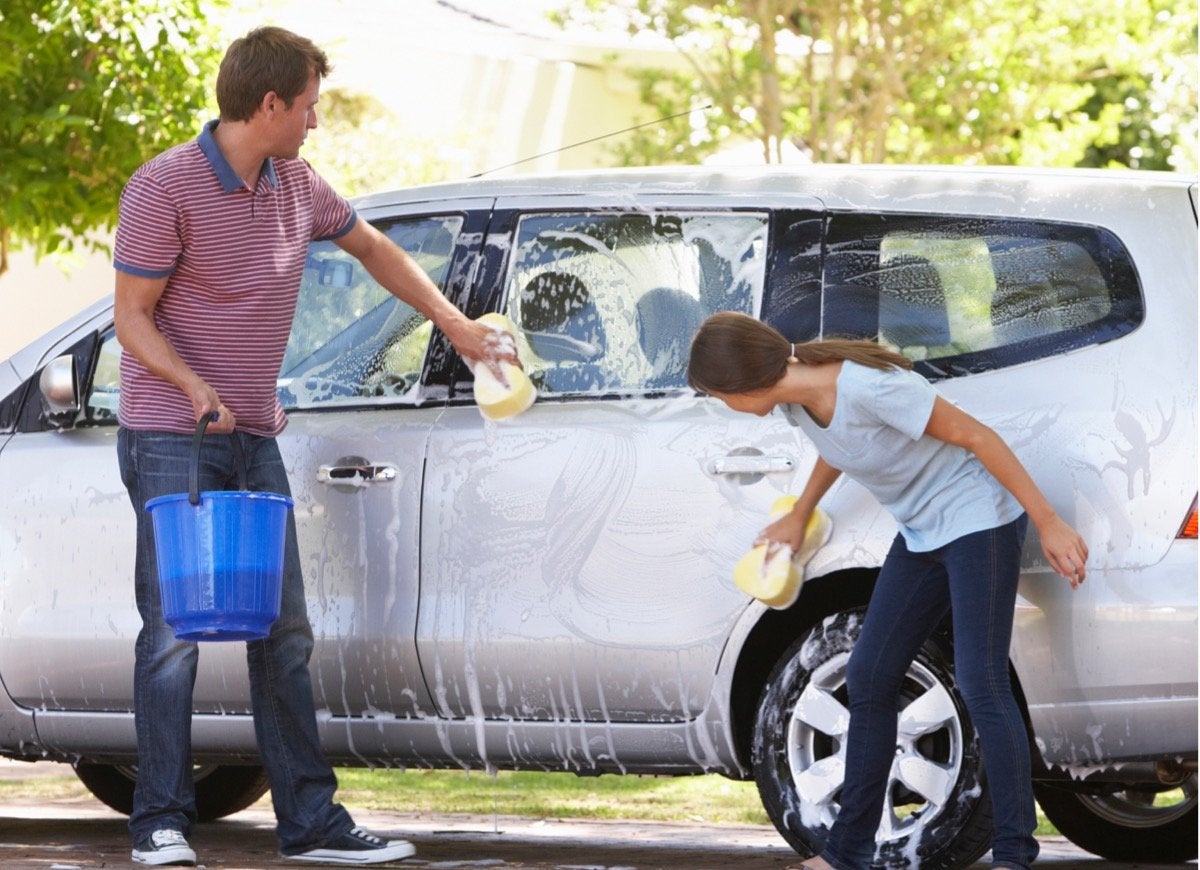
Few household jobs are as satisfying and memory-making as washing the car. In fact, this job is a wonderful way to bond with your kids, and it takes nothing more than sponges, soapy water, buckets, and dry cloths—oh yes, and some time. Kids love it when you pay special attention to them, even when they hit the preteen and teen years.
Best for 13 to 16: Babysit
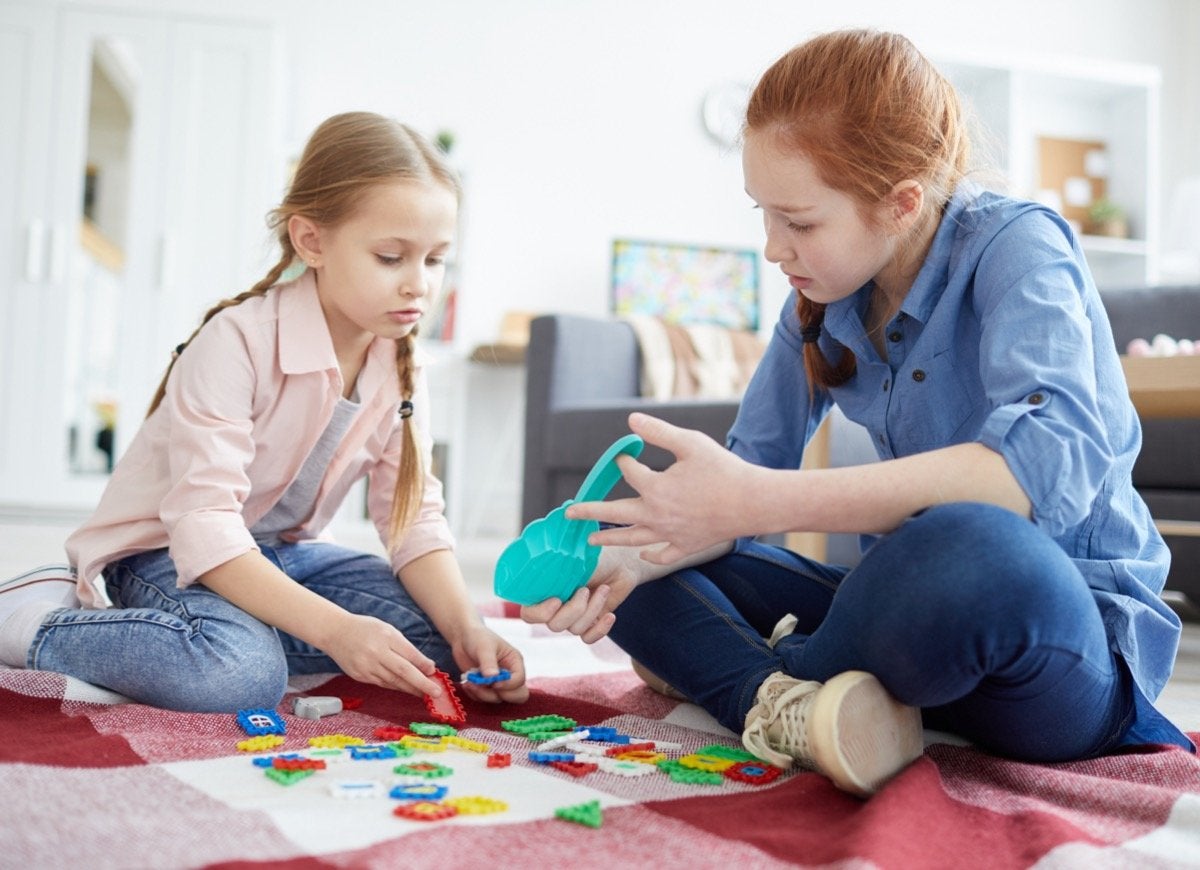
Not all 13- to 16-year-olds are cut out to be babysitters. But if your teenagers exhibit a knack for childcare, you should feel comfortable asking them to look out for their younger siblings and other neighborhood kids. Prepare them for babysitting ahead of time and start small: a couple of hours in the afternoon, while you are still close by. Gradually, your teen will become more responsible and watchful, and might be able to make a little pocket money to boot.
Best for 13 to 16: Meal Prep
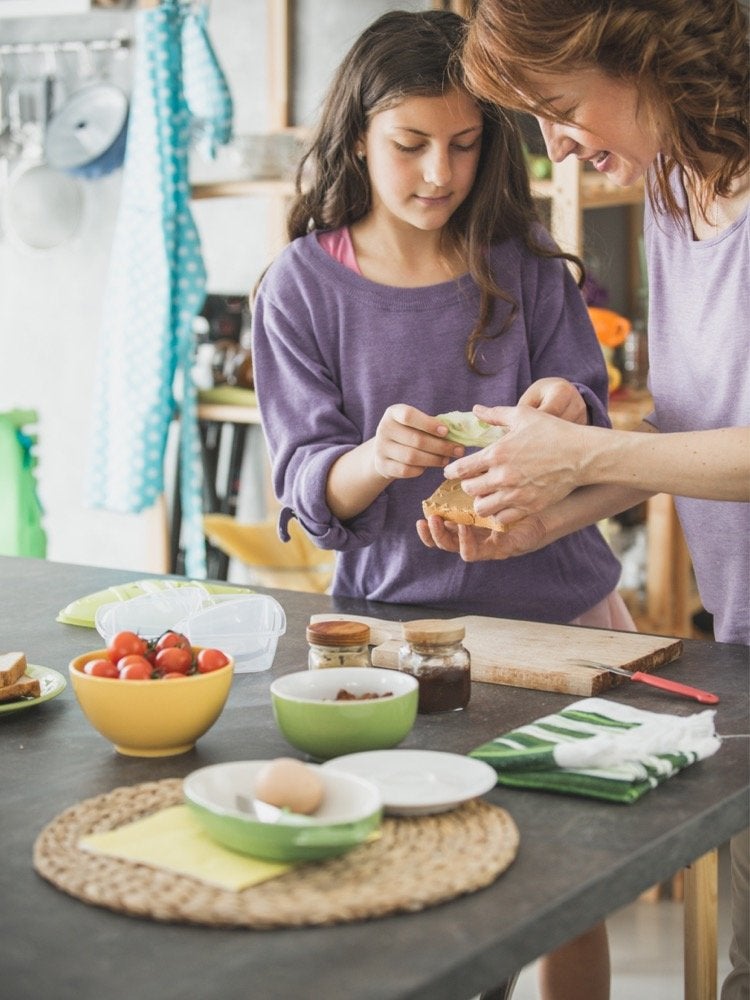
Sharing time in the kitchen need not be a chore at all. Cooking together is a great way to develop a good relationship with your children as well as with food. Cuisine can be an adventure, so brainstorm ideas for meals that tickle your kids’ taste buds and get them thinking about food in new ways. For example, if your child has a friend from another country, consider making a dish from their culture and learning the history and traditions that surround it.
Best for 16+: Run Errands
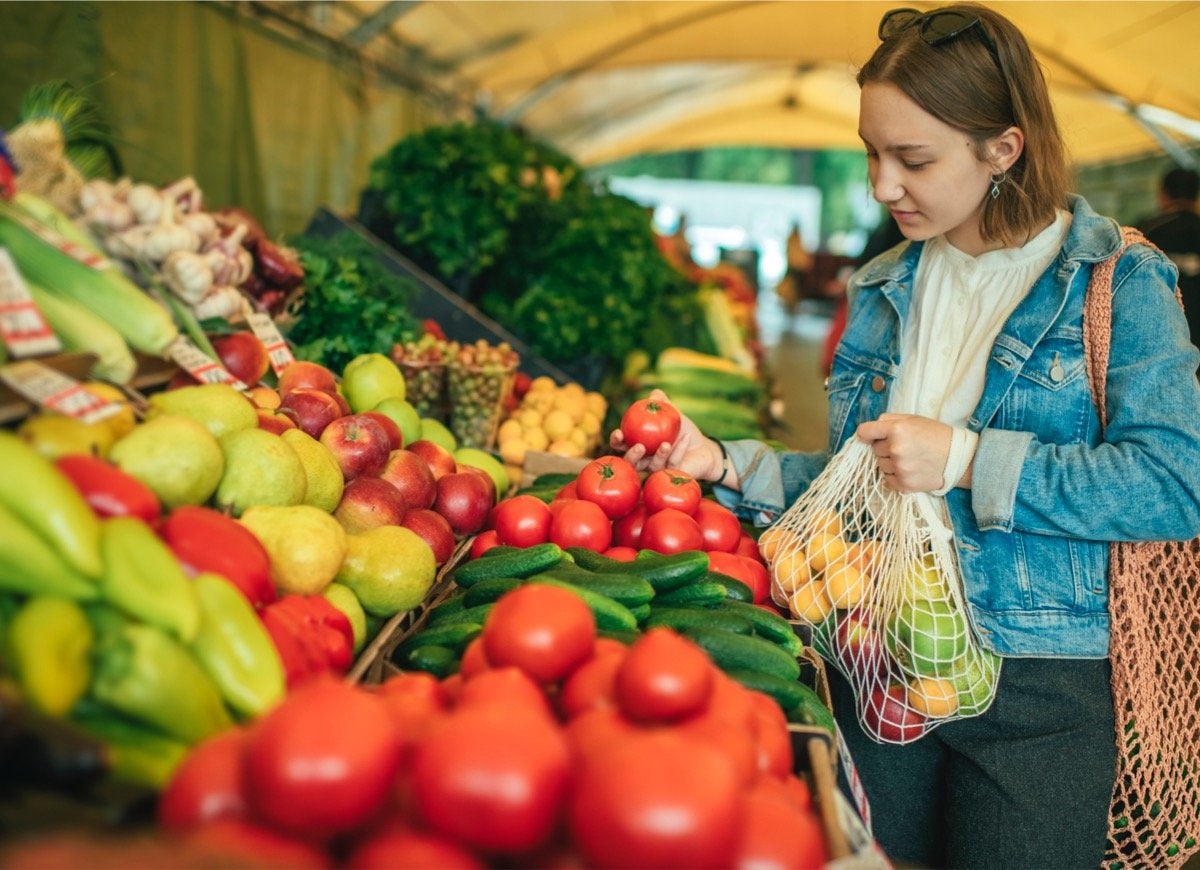
Handing your kid—ahem—young adult the keys to your car can be scary yet freeing. There are several steps you have to take in advance, including enrolling them in drivers’ ed and stressing the fact that cellphones and driving don’t mix. Once your kids have their license, however, local errands are great practice, and they can really help out a time-stressed parent. So, feel free to ask your teen to run to the grocery store or pick up a prescription.
Best for 16+: Visit Grandparents
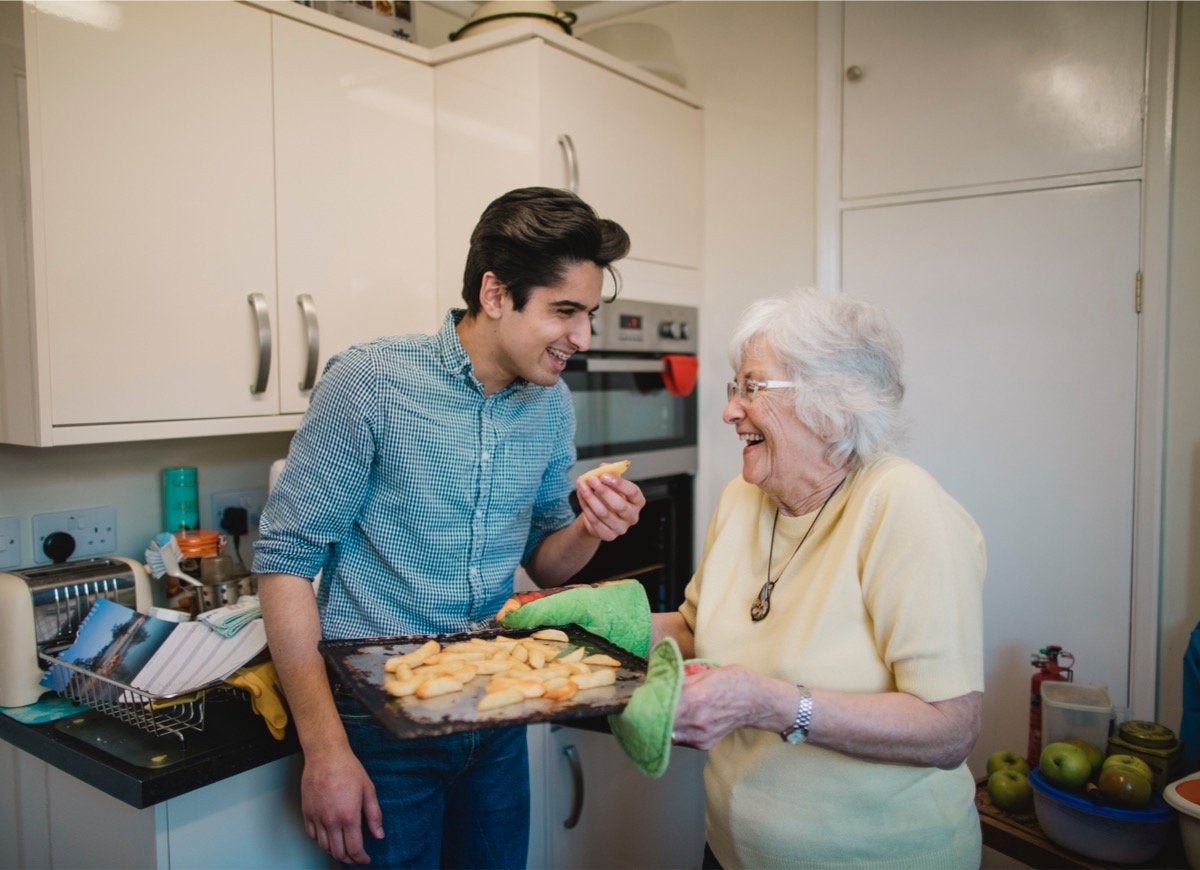
Stretch the definition of “chore” to encompass acts of kindness and consideration, including dropping in on elderly friends and relatives. They love visits from kids, and the interaction is a gift for the teens too. Prepare your teenagers for these visits by talking openly about what they should expect and how to cope with various situations. This is especially important if your elderly parents have dementia or Alzheimer’s. While visits can help maintain your parents’ mental acuity and raise their spirits, your teens need to be equipped for any challenges they may encounter.
Best for 16+: Help Neighbors
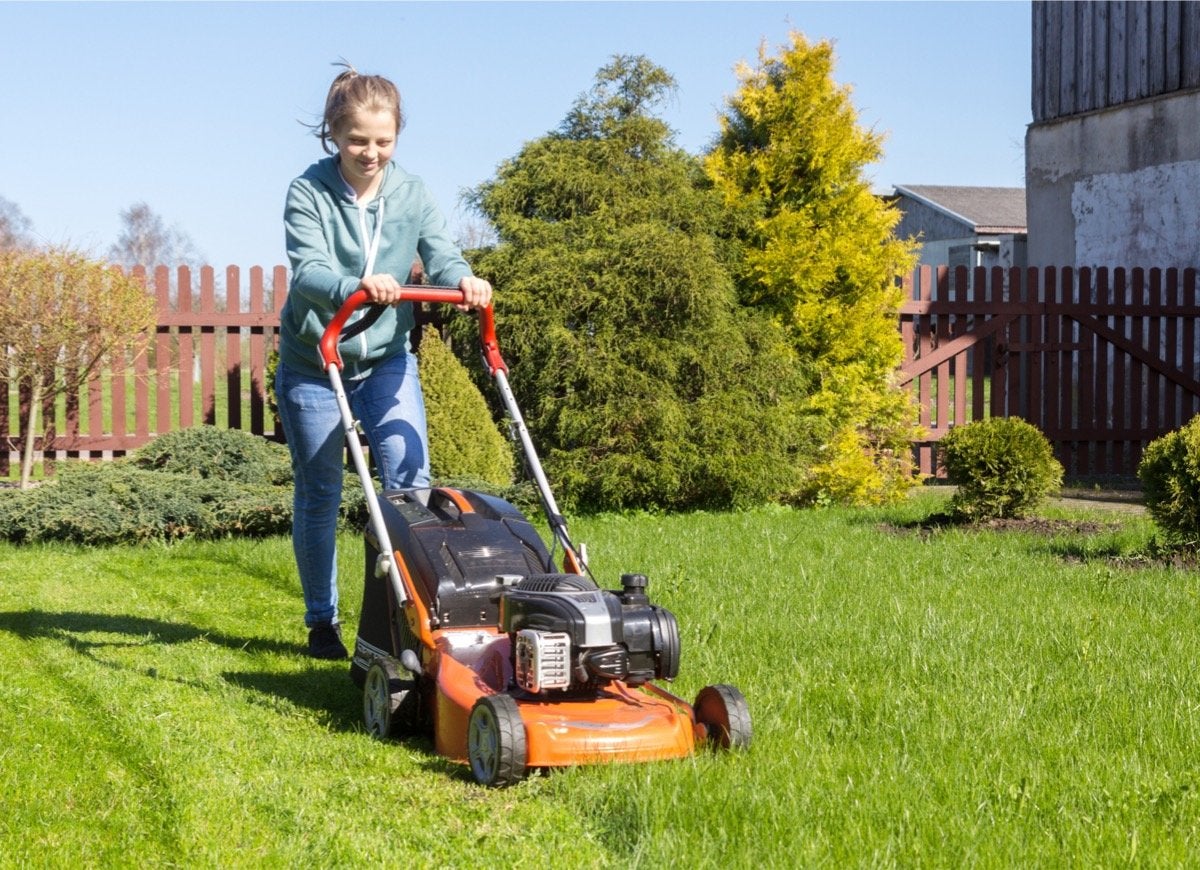
Helping others is a natural outgrowth of helping around the home. If your teen is interested in the outdoors, mowing lawns or other landscaping work may be a route to some extra college money. If your teen enjoys conversations, checking in on neighbors can encourage listening and connection, and could open up broader opportunities. Being neighborly is a good way to nurture both entrepreneurial abilities and a spirit of service.
The More Hands The Better
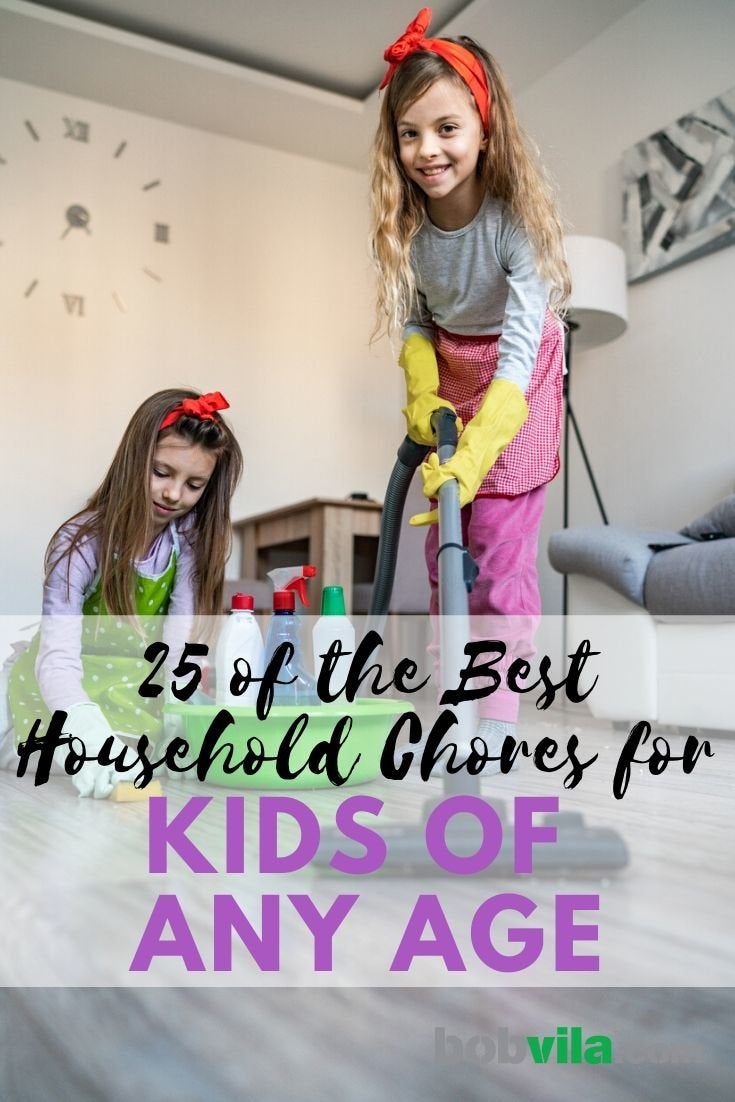
Involving kids in chores is good for them, you, and your house as a whole.

The Homeowner Survival Kit
This year’s Bob Vila Approved is a hand-picked curation of tested, vetted, must-have essentials for surviving homeownership today.